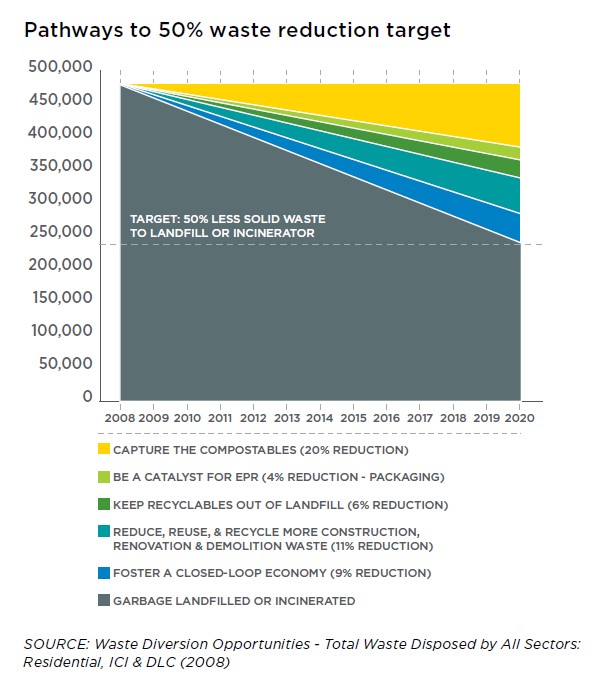
Jurisdiction: City of Vancouver, British Columbia
Plan Year: 2009
Update Year: 2013-14, 2012-13, 2011-12
Progress Report Year: (Included in Updates)
Background:
In 2009, Mayor Gregor Robertson’s Greenest City Action Team published “Vancouver 2020: A Bright Green Future,” which used best practices from green cities around the world to develop the goals and targets for Vancouver to meet in order to become the greenest city in the world. Through a collaborative process, the City then developed the Greenest City 2020 Action Plan (GCAP), which outlines exactly how Vancouver can achieve its goal of becoming the world’s Greenest City. Over 35,000 people across the globe contributed their opinions through social media and in-person workshops and events. To decide the best method to achieve Vancouver’s goal, the plan incorporated ideas and feedback from over 9,500 individuals, primarily Vancouver residents. City Council approved the GCAP in July 2011. Vancouver reports annually on the goals, targets, and progress.
The plan focuses on three main areas:
1. Carbon
2. Waste
3. Ecosystems
The GCAP is comprised of 10 smaller plans that have both medium-term (year 2020) and long-term (year 2050) targets. The 10 plans include the following goals:
1. Green economy
2. Climate leadership
3. Green buildings
4. Green transportation
5. Zero Waste
6. Access to nature
7. Lighter footprint
8. Clean water
9. Clean air
10. Local food
Materials Management Goals:
“The first two of the ‘three Rs’—reducing and reusing—are even more important for a zero waste society than recycling. This strategy helps to avoid the extraction of raw resources and conserves the energy used to produce new products.”
Three of the 10 plans involve materials management goals, including:
Goal 3: Green buildings
- Require all buildings constructed from 2020 onward to be carbon neutral in operations
- Reduce energy use and greenhouse gas emissions in existing buildings by 20% over 2007 levels
Goal 5: Zero Waste
- Reduce solid waste going to the landfill or incinerator by 50% from 2008 levels
Strategies:
Vancouver outlines current programs in place that are making progress toward reaching its goals. Some of these programs include:
- Extended Producer Responsibility (EPR) programs reduce environmental impact of products across their life cycles
- Green demolition (deconstruction) practices so building materials can be salvaged and reused
- New green building requirements for all new one- and two-family homes
- The Green Bin Program: curbside organic waste collection for Vancouver residents
- Proposed zero-waste energy center: non-incineration resource and energy recovery in South Vancouver
- Compost for residential gardens available for sale from the Vancouver Landfill
- Launched world’s first cigarette butt recycling program
Learn more about all the strategies for green building (http://vancouver.ca/green-vancouver/green-buildings.aspx) and zero waste (http://vancouver.ca/green-vancouver/zero-waste.aspx).
Progress Report:
All 10 categories improved over their baselines. In its 2013-14 Implementation Update (http://vancouver.ca/files/cov/greenest-city-2020-action-plan-2013-2014-…), Vancouver reported:
- Overall 6% reduction in GHG emissions since 2007
- 3% decrease in CO2e emissions from residential and commercial buildings (between 2007 and 2013)
- 12% decrease in annual solid waste disposed to landfill or incinerator (between 2008 and 2012)
- In 2014, a typical home built in Vancouver produces half the greenhouse gas emissions compared to one built to the Provincial building code (British Columbia)
Next Steps:
- Targeted for 2015: Metro Vancouver regional ban on all compostable material from landfill and incinerator
- Expanding pilot program for retrofitting rental buildings to increase energy efficiency
Links:
